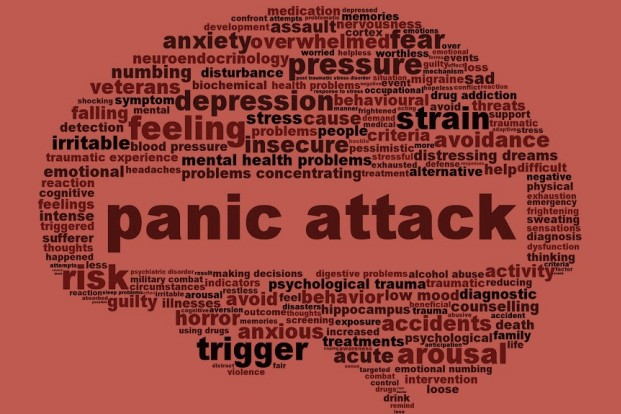How to Deal with Panic Attack
Apr 19, 2022
A panic attack is a sentiment of unexpected and extraordinary uneasiness. Fits of anxiety can likewise have physical side effects, including shaking, feeling disorientated, sickness, quick, sporadic pulses, dry mouth, shortness of breath, perspiring and dazedness.

The manifestations of a fit of anxiety are not hazardous, yet can be extremely startling.
They can make you feel just as you are showing some kindness assault, or that you are going to fall or even pass on.
As the tension passes, center around your environment and keep on doing what you were doing previously.
In case you’re having a short, unexpected fit of anxiety, it very well may be useful to have somebody with you, consoling you that it will pass and the side effects are nothing to stress over.
Breathing activity for fits of anxiety
In case you’re breathing rapidly amid a fit of anxiety, completing a breathing activity can facilitate your different side effects. Attempt this:
- Breathe in as gradually, profoundly and tenderly as you can, through your nose.
- Breathe out gradually, profoundly and tenderly through your mouth.
- Some individuals think that its accommodating to tally consistently from 1 to 5 on each in-breath and each out-breath.
- Close your eyes and spotlight on your relaxing.
- You should begin to feel better in almost no time. You may feel tired thereafter.
- Visit the No Panic site for another breathing activity to quiet frenzy.
- Approaches to anticipate alarm assaults
- Doing breathing activities consistently will avert alarm assaults and mitigate them when they are going on
- Regular work out, particularly high-impact work out, will assist you with managing feelings of anxiety, discharge pressure, improve your state of mind and lift certainty
- Eat ordinary suppers to settle your glucose levels
- Avoid caffeine, liquor and smoking – these can aggravate alarm assaults
- Panic bolster bunches like No Panic have helpful guidance about how you can adequately deal with your assaults. Realizing that other individuals are encountering similar emotions can be consoling
Psychological therapies like cognitive behavioural therapy (CBT) can identify and change the negative thought patterns that are feeding your panic attacks.
You can refer yourself directly to a psychological therapies service without seeing a GP.









